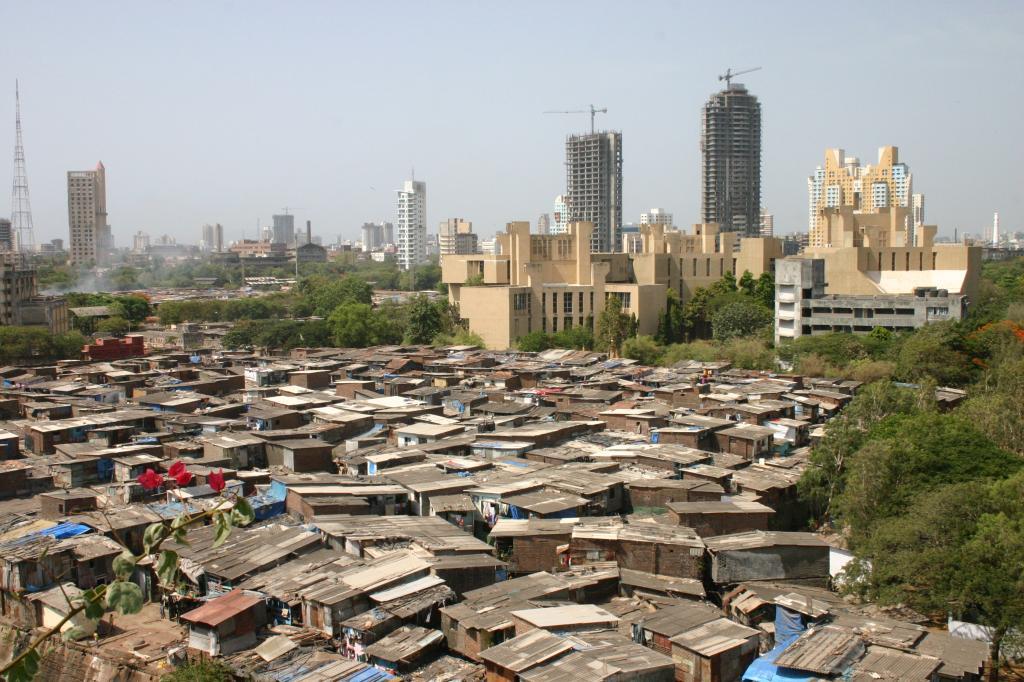The latest Oxfam report has nailed the truth in India where a microscopic rich minority is getting richer and the majority grovelling in poverty. Yet, the main political discourse seems oriented towards religion. The Congress, which is desperately trying to refurbish its image as a party of the masses through its ‘Bharat Jodo Yatra’ campaign, is getting into the trap. Instead of raising the issue of dire economic plight of the majority, it is now busy identifying which Opposition parties are having tacit understanding with the BJP. The so called sickular crowd seems to have lost the plot.
The Oxfam report says that ‘economic inequality in India is being added to a society that is already fractured along the lines of religion, caste, region and gender.’
The stark reality in India is that 73 per cent of the wealth generated in 2017 went to 1 per cent of the rich. The richest have cornered a huge part of the wealth created through crony capitalism and inheritance while the poor are still struggling to earn minimum wages and gain access to quality education and health care for which government investment is minimal.
The focus could have been on the issue that even if India reaches a 5 trillion economy, 4.75 trillions will, most likely, be with the 1 per cent mentioned in the recent Oxfam report. The rest 0.25 trillion may get distributed among the rest of the 1.5 billion people.
It looks as if the Congress is shifting gear towards religion, away from the economic crisis that is harming every single household of this country today. This will only help the BJP gain rich political dividends as religion of the majority is the prime plank for that party. The Congress strategy of dragging in the secular credentials of parties, including Aam Admi Party, Asaduddin Owaisi’s AIMIM will divert focus and make it look like the minorities are the only issue for the Congress.
Congress spokesman Jairam Ramesh cast doubts about the sincerity of Arvind Kejriwal-led AAP and Owaisi’s AIMIM to fight the BJP. According to the Congress assessment, both the parties are working at the behest of the BJP to blunt the edge of anti-incumbency factor and eat into the Congress votes. As such the two parties are, in the Congress’ eye, supposedly agents or ‘B’ teams of the BJP working to make the Congress irrelevant in the country’s politics and help the BJP retain power both at state and national levels.
The Congress cites the outcome of recent Assembly elections in Gujarat and Goa as examples of the two parties’ backstabbing it, while maintaining a façade of antipathy towards the BJP. For this reason, it is convinced, the AAP fielded candidates in the Gujarat Assembly election in such a manner that ensured the anti-incumbency factor did not help the Congress swell its vote base. On the contrary, it cut into Congress’ votes, thereby helping the BJP increase its vote share. Along with these two outfits, the Congress seems to be also considering Badruddin Ajmal’s AIUDF, K Chandrasekhar Rao’s TRS (renamed BRS), Naveen Patnaik’s BJD, AIADMK, Akali Dal and YSR Congress Party as part of the ‘B’ Team helping the BJP clandestinely.
The Congress may not be far from the truth. It is true all these political parties and their leaders do not raise issues that might harm the BJP’s poll prospects anywhere. The AAP, for instance, was silent on the Bilkis Bano case and the fate of cases of atrocities on the minorities during the Gujarat elections.
Similarly, Owaisi’s anti-Hindootva rhetoric is nothing but a ploy to help the BJP’s gameplan of consolidating its Hindoo vote base by playing the communal card aggressively. In fact, Owaisi and his party have long become suspect in the eyes of some other Opposition parties as well in Bihar and West Bengal. In the last Assembly elections in both these states his fight against the BJP was considered to be hypocritical despite his anti-Modi posturing. His main agenda, as alleged by the Trinamool Congress in West Bengal and the RJD in Bihar, was to dent the support of the minorities for the two parties to help the BJP surge ahead of its main adversaries taking advantage of the division of votes.
It is doubtful if turning the secular-religious debate into the main election plank, as the Congress seems to be doing once again will help the non BJP cause.
The flaw of such a policy is that it weakens Opposition unity so much that the fight against the BJP appears doomed. Opposition alliances in the past were built on a so-called principle of extending issue-based support with economy being the main focus. A common minimum programme aimed at improving the economy that will help the majority of the populace takes care of disparities, mismatch and suspicion of allies so that the bigger goal of ousting the ruling party or alliance out of power could be achieved.
The Congress seems not yet prepared to follow this trajectory at least at the moment. By talking about the secular credentials of some Opposition parties it is only betraying its incapacity for understanding the plight of masses despite its mass-contact campaign.
Unemployment, low wages, crippling of the micro, small and medium enterprises due to demonetization, utter failure of foreign policy resulting in the total isolation of India on the global theatre and lastly the divisions created through language and such issues along with the obviously blatant encouragement given to a few select industrialists who are cornering everything in this country should be issues raised that would make people sit up and think.
Let religion be kept away from the discourse.
